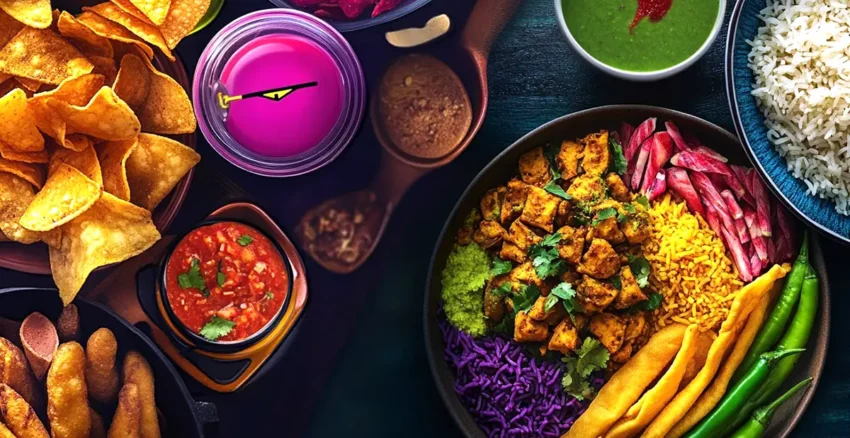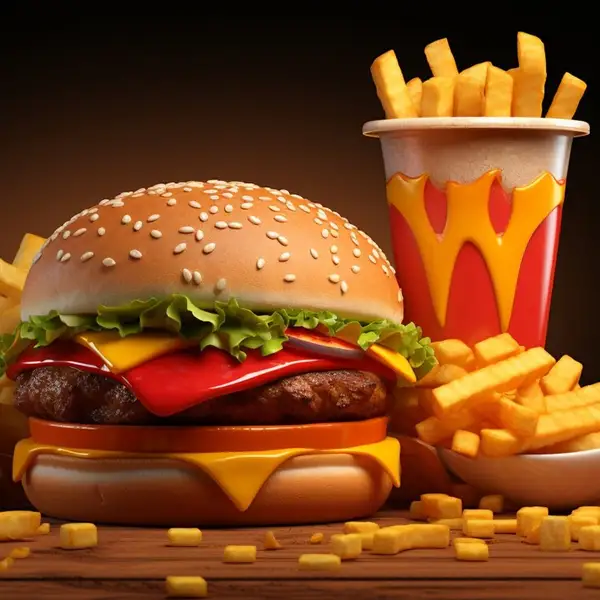Ultra-Processed Foods Linked to Early Death: What You Need to Know
A recent international study has raised alarm bells over the everyday foods many of us consume without a second thought. Ultra-processed foods (UPFs)—which include packaged snacks, sugary drinks, and ready-to-eat meals—have now been directly linked to an increased risk of premature death.

Published in the American Journal of Preventive Medicine, the study followed over 200,000 participants across eight countries, including the U.S., Brazil, and the U.K. It found that a 10% increase in UPF consumption was associated with a 3% rise in all-cause mortality. That means the more processed food you eat, the higher your risk of dying early—regardless of age or background.

What Are Ultra-Processed Foods?
UPFs are food products that are highly manipulated during manufacturing. They often contain chemical additives, preservatives, flavor enhancers, and little to no whole food content. Common examples include:
Instant noodles
Flavored chips
White bread
Packaged biscuits and cookies
Fizzy drinks
Sugary breakfast cereals
Frozen or microwave-ready meals
They’re cheap, tasty, and convenient—but potentially deadly in the long run.

Why This Matters for India
India is no exception to this growing concern. Over the last decade, the Indian market has seen a rapid surge in UPF consumption, particularly in urban and semi-urban areas. Instant noodles, packaged snacks, and processed beverages have become staples in many Indian households.
According to FSSAI and market research, India witnessed a 13% annual growth rate in the packaged and processed food sector between 2011 and 2021—among the highest in the world. This trend correlates with a rise in obesity, diabetes, and heart disease, even in younger populations.
Children and working professionals are especially vulnerable due to their reliance on processed foods for convenience.
Health Risks You Can’t Ignore
Medical experts warn that consistent consumption of ultra-processed foods increases your risk of:
Heart disease
Obesity
Type 2 diabetes
Depression and anxiety
Cognitive decline and stroke
Cancer (linked to certain emulsifiers and preservatives)
In short, what seems like a harmless snack or a quick dinner could be silently harming your body over time.

How to Reduce the Risk: Simple Indian Lifestyle Shifts
1. Cook fresh, local meals at home:
Use whole grains like millets, fresh vegetables, lentils, and homemade spices instead of pre-packaged masalas or sauces.
2. Read food labels:
Avoid products with long ingredient lists, especially those containing additives like “E-621”, “sodium nitrate”, or “high fructose corn syrup”.
3. Reduce sugary drinks:
Replace soft drinks with nimbu pani, coconut water, or buttermilk.
4. Practice mindful eating:
Slow down, chew well, and enjoy traditional Indian meals made from scratch.
5. Integrate exercise, yoga & meditation:
Daily physical activity and mindfulness can reduce cravings, regulate appetite, and support mental clarity—especially helpful when reducing processed food intake.
Is There a Cure or Medicine?
There’s no “pill” to counter the damage caused by years of consuming ultra-processed foods. However, the body can begin to heal once you shift to a cleaner, more natural diet. Doctors suggest:
High-fiber diets to support gut health
Antioxidant-rich foods (like amla, turmeric, green leafy vegetables)
Routine health check-ups to catch early signs of metabolic disorders
Ultra-processed foods may be convenient, but the health trade-offs are proving deadly. With India’s young population increasingly exposed to these products, now is the time for both individuals and policymakers to act. Opting for whole, real food isn’t just a trend—it’s a life-saving choice.
Inflect.in — Your daily dose of stories that inform, inspire, and ignite curiosity. Follow us for more!
Inspire
Latest Post

AI in Healthcare: Smarter, Faster, and Accessible

Is Co-Sleeping Safe for Babies? Pros, Risks,

Pomegranate Benefits: Why Eating Anar or Drinking

Ma Yansong: Shaping the Future of Architecture

AI in Healthcare: Smarter, Faster, and Accessible

Is Co-Sleeping Safe for Babies? Pros, Risks,

Pomegranate Benefits: Why Eating Anar or Drinking








